Stereotypes abound in any discussion about ‘Gen Z’. Many are unfair, but it is clear that the professional and life priorities of this generation are different from those who came before. Can the legal profession adapt? Eduardo Reyes reports from the latest Gazette roundtable
At the table
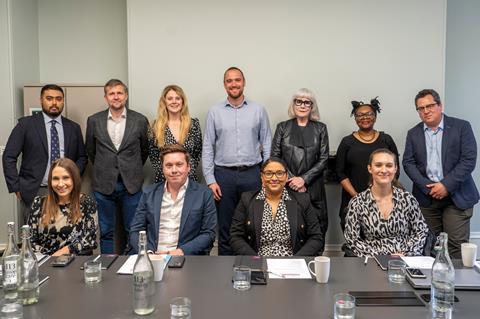
(Back row, l-r) Shaheen Mamun Black Antelope Law; Wojtek Dabrowski Dye & Durham; Maeve Keenan Kingsley Napley; Stanley Carrodus Bates Wells; Laura Devine Laura Devine Solicitors; Donna Goodsell Goodsells Family Law; Eduardo Reyes Law Society Gazette
(Front row, l-r) Tracy Lacey-Smith SA Law; William Miles Briffa; Nusrat Siddique Junior Solicitors Network; Rebekah Sutcliffe Junior Solicitors Network
It is surprisingly easy to find lawyers over 45 who are openly rude about the generation now entering the legal profession. Sweeping generalisations are usually some variation on the theme of ‘snowflakes’.
‘Gen Z’ lawyers can’t take criticism; won’t put in the hours; have a bafflingly low threshold for things that affect their mental wellbeing. They have unrealistic expectations of early financial reward; spend too much time on TikTok; are not interested in partnership; only eat avocados; and are quite happy renting instead of owning their own home.
I have heard all these views from seemingly sensible professionals, some of whom have children born between the mid-to-late 1990s and the early 2010s, the rough designation for Gen Z. And I wonder why it is thought OK to denigrate a whole group in such a way. The same is no longer acceptable for race or gender.
A quick survey of the academic literature on generational characteristics would surprise Gen Z’s detractors, because the qualities ascribed to this cohort are positive. Gen Z, a study at Stanford concludes, are not ‘coddled’.
‘A typical Gen Zer is a self-driver who deeply cares about others,’ the study’s co-author Roberta Katz writes. ‘[He or she] strives for a diverse community, is highly collaborative and social, values flexibility, relevance, authenticity and non-hierarchical leadership, and, while dismayed about inherited issues like climate change, has a pragmatic attitude about the work that has to be done to address those issues.’
A Gen Z lawyer has many values in common with ‘millennials’ (born between 1981 and 1996), who in turn share key Gen X traits. Yet priorities and expectations have changed over time. This roundtable, which includes law firm principals and partners, and solicitors at the very start of their careers, including representatives from the Law Society’s Junior Solicitors Network (JSN), considered ways of working; career progression and reward; wellbeing; employer values; and the use of technology.
If the legal profession can adapt to accommodate and exploit new priorities, values and skills, it has a bright future.
Ways of working
It is said that Covid-19 lockdowns achieved overnight changes in the workplace that would otherwise have taken a decade. But while the shift to remote, hybrid and more flexible work patterns might be considered ‘modern’, the chief beneficiaries are often people well established in their careers, rather than those at the start.
‘I trained through the pandemic, which was an interesting time to be a trainee,’ JSN vice-chair Rebekah Sutcliffe says. Outside the lockdowns, she recalls: ‘I had to be in every day, but the partners weren’t, and I think for a lot of juniors, that’s where the problems come from, because they’re expected in, but perhaps the seniors aren’t.’
Fellow JSN committee member Nusrat Siddique adds: ‘I do think there is a need for more partners and senior members of staff to be in a lot more, because that’s how the trainees will train.’ She notes that there are benefits from greater flexibility, which are appreciated by junior colleagues. Siddique, though, comes in to the office more than the standard expectation of three days a week, because she is building her experience by learning from colleagues.
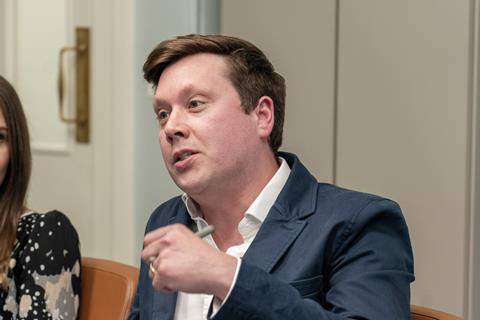
William Miles, partner at specialist intellectual property firm Briffa, notes that a third of its employees fall within Generation Z. They are expected to be in the office full-time for the first six months at the firm, but thereafter hybrid working is the norm. People at the junior level, he says, want to know that flexibility ‘will come when they get more senior’.
Briffa, Miles notes, has created policies that would have been hard to imagine for previous generations of lawyers when they started out. ‘We have things like unlimited annual leave,’ he says, and ‘people working from abroad for certain periods’. He adds: ‘We try and be as generous as we can about flexibility and have a world in which everyone is available through Teams… whether or not they’re in the office.’
Perhaps a desire for extra flexibility and control around place, space and time is a necessary compensation for features of the profession that have been lost. The physical distance between work and home once guaranteed a division between the two spaces. Technology now bridges that gap, and has done so for all generations working in the law.
Partnership
'One thing I’ve realised is being transparent is very highly appreciated by Gen Z lawyers; setting out expectations from the very beginning'
Shaheen Mamun, Black Antelope Law
Can equity partnership maintain its place as the glittering prize of private practice? Firms of all sizes, including the global elite, report a diminished interest in partnership among lawyers at the start of their careers. Succession is a concern, as some junior lawyers who firm leaders had earmarked as partnership material leave private practice for in-house roles or non-law business opportunities.
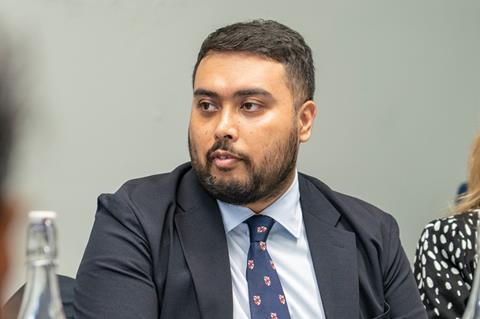
It is true that the financial benefits of equity status have been diminished by tax reforms. Moreover, some high-profile firm collapses have underlined the risks inherent in co-owning a business in which one cannot control the risks and behaviour of fellow partners.
But the potential rewards remain significant. At the very largest firms, profit per equity partner is a multiple of past generations’ expectations. And financial motivation has been identified as a leading Gen Z characteristic. JSN’s Siddique notes that ‘the importance of finances’ also links directly to ‘wellbeing’.
'People entering the law wouldn’t necessarily have the bank of mum and dad... there’s more need to have a salary that supports them'
Donna Goodsell, sole practitioner
By the account of this group, it is the path to partnership that requires attention. ‘When it comes to Gen Z lawyers and the junior end of the profession, I’ve realised that younger lawyers are a bit more confident and a bit braver… in terms of discussing their financial expectation, in comparison to some of our generation,’ Shaheen Mamun, co-founder of London firm Black Antelope Law, says. ‘When I was a junior lawyer the possibility of talking about a pay increase, or reviewing my salary… would be a dreadful conversation to have with your employers.’ Now frankness on finance and reward is to the fore. ‘One thing I’ve realised is being transparent is very highly appreciated by Gen Z lawyers; setting out expectations from the very beginning.’
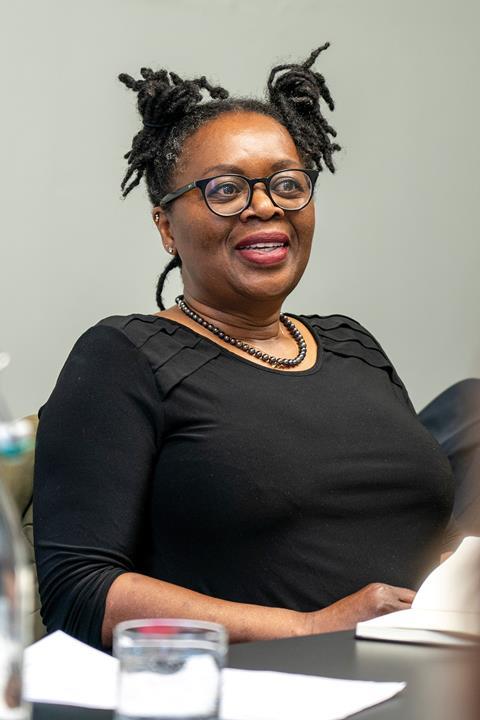
That is part necessity, sole practitioner Donna Goodsell points out: ‘Historically, the law attracted people who were very well-heeled, so perhaps they had other resources, therefore the dependency on a salary wasn’t so acute. Whereas now, people are entering the law a bit later. They’ve done other things and might be living independently, and because it’s more of a meritocracy, it’s not necessarily people from certain backgrounds, but people who are intelligent. So, they wouldn’t necessarily have the bank of mum and dad… there’s more need to have a salary that supports them.’
Like Mamun, Briffa’s Miles confirms the importance of transparency: ‘We lost good lawyers historically because they felt, “this guy billed less than me, and I’m getting paid the same as him, and that’s not fair”,’ he relates. ‘And we just didn’t feel like we had a good answer to that.’ As a result, he says: ‘We took the decision to pay our lawyers a third of what they bill.’
‘A lot of our younger lawyers do want partnership and the transparency of career progression is very important to them,’ says Tracy Lacey-Smith, joint managing partner of St Albans firm SA Law. ‘They want to know exactly how long it will take to get to each level and what they need to do, and we have it published so they can see it. Exactly what it means in terms of financial targets, marketing, client relationships and other things supporting the firm. We have had people say they’re not interested in [partnership] for their own reasons, but generally I think there’s still an interest.
‘Generation Z are actually quite entrepreneurial. It’s a naturally entrepreneurial generation, I even see it with my children. That’s great, it should be embraced. They do bring a lot of great ideas.’
Some things need to change around the path to partnership, though. Miles recalls: ‘When I trained, business development meant drinking, basically, and if we were to take that approach with our junior lawyers they’d be saying, “this is completely uninteresting, we’re not doing any of that”.’
Retaining junior lawyers on the path to the top also requires boundaries to be respected, Siddique notes. For many, it is important to know that ‘by six o’clock they’re out the door’. But, she adds, their personal time having been respected, in the morning they’ll ‘come [to work] ready to be all the more productive’.
'When I trained, business development meant drinking, basically, and if we were to take that approach with our junior lawyers they’d be saying, ‘this is completely uninteresting, we’re not doing any of that’
William Miles, Briffa
Generation tech
‘The industry has been very conservative in technological adoption,’ roundtable sponsor Dye & Durham’s chief people and communications officer, Wojtek Dabrowski (pictured below), observes. But the company’s research shows ‘we’re getting to the point... where the demographic shift is going to take care of that, whether you like it or not’.
The research included the survey question: ‘How comfortable would you be with using artificial intelligence in the workplace?’. Dabrowski says: ‘The breakdown is 30% of boomers say they would use AI; Gen Xers goes to 57%; and then millennials and Gen Z, respectively 76% and 71%... it’s not a matter of if, it’s a matter of when.’
The legal technology company recently launched an AI-powered digital assistant on its UK platform (see tinyurl.com/3ej5svh9). ‘You can just tap in “draft me a will” – and in 15 seconds it has generated one,’ Dabrowski says. But this capability is not going to replace lawyers: ‘It’s going to be the first draft. You’re going to need to overlay your expertise and experience.’
He also draws attention to some of the use cases emerging. ‘It’s a lot more than just your plain generative AI in many cases,’ he says. ‘Now you can find a model that has been trained on a large database of commonly used contracts, T&Cs… that sort of thing. You take your agreement that you just drafted, you put it into the tool, and it flags, according to a set of defined parameters that you’ve told the algorithm, frequent issues that you might have in that contract and that your client specified that they don’t want to see or they do want to see what’s missing.’
While Dabrowski acknowledges that this is ‘getting really, really close to giving advice’, he stresses: ‘It cannot outsource human thinking to that, because that’s when everything falls over.’
Every roundtable attendee has tried setting tasks for generative AI, if only out of curiosity. Some have gone further. Briffa’s William Miles says: ‘We’ve signed up to two different AI software pieces this year and we’re talking to about three others at the moment, because there seems to be a bit of an arms race. There’s so many people doing everything.’ Eventually, he expects a market leader to emerge.
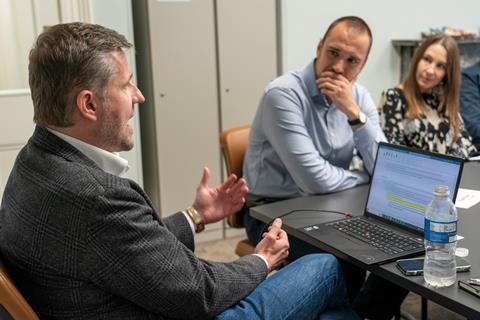
Wellbeing
The prevalent focus on wellbeing and mental health in the profession has confounded some senior lawyers, though not those present. Goodsell recalls one former imperative – ‘the ability to withstand the senior partner screaming at you’, along with an unquestioning acceptance of brutal hours.
The figure of the screaming senior partner is not extinct, but such conduct is viewed differently, and long-hours culture is increasingly challenged. Miles stresses the importance to a business of good mental health policies. ‘If they’re not OK,’ he points out, ‘they won’t stay with us. They’ll just go somewhere else… our sole focus is… getting the best people and keeping them.’
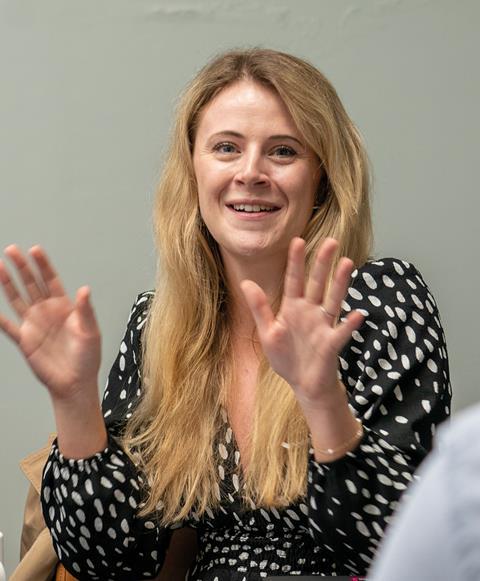
Those present reflect on the prevalence in firms of support that was absent in the past, from trained mental health ‘first-aiders’ to the availability of talking therapies and a greater stress on social activities that take physical health into account.
But the conversation quickly turns to the role played by work itself. Laura Devine, principal and founder of Laura Devine Immigration, explains: ‘You could have people in your office who are trained to support mental health, and you can talk about mental health issues and you can give them visibility – and all of that will only ever be window-dressing if the fundamentals of the way you work make people miserable.’
Kingsley Napley crime solicitor Maeve Keenan reflects: ‘I do think there sometimes can be a bit of a misunderstanding for the generation above.’ Aspects of work have ‘changed so drastically’, she points out: ‘When those people were trainees, they didn’t have a work phone, they didn’t have… this complete and constant availability that, I think, juniors can be expected to have.’ As a result, she stresses: ‘We have to set boundaries.’
Of course, greater openness in the workplace on mental health and wellbeing has often been instigated by older, senior lawyers. ‘A lot of the more senior staff are actually coming out and talking about [experiences like] burnout,’ Siddique notes. That frankness is expressed in articles on firm intranets and in the legal press, and at events. It is this greater honesty that has signalled permission for a focus on wellbeing for lawyers at all levels.
Priorities of Gen Z lawyers
Financially motivated: in part from necessity – confidence in seeking financial rewards is driven by student debt, later qualification and the increasing cost of living.
Focused on wellbeing and mental health: great openness by senior lawyers has signalled permission for lawyers of all ages to be more open about their wellbeing needs. Technology has removed work boundaries, increasing pressure on junior lawyers.
Entrepreneurial: transparency and fairness around reward and career progression are key demands. A non-hierarchical approach leads to open questioning and a willingness to put forward ideas, despite being junior.
Tech-savvy: as well as an easy facility with technology as users, Gen Z can build connections and establish trust online. There is an expectation that artificial intelligence will be used in the completion of legal instructions.
Flexible: while greater work flexibility is valued, in-person experiences in the office are critical, not least to learn from colleagues. The promise of greater flexibility as careers progress is coveted.
Ethical: having grown up with ethical ‘window-dressing’, this generation demands more concrete proof of public good than older lawyers did.
Values and purpose
Law firms of all sizes routinely make public statements about their values and ethics, and their commitment to environmental, social and governance standards. Some, such as environmental standards, are mandatory reporting exercises for larger firms. These issues are a high priority for Gen Z which is reflected, law firm leaders relate, in the questions potential recruits ask at interview.
Stanley Carrodus, recently qualified solicitor at London firm Bates Wells, notes: ‘If you’re at that age, you have been immersed in companies making those claims, probably for as long as you’ve been paying attention. And the claims themselves won’t impress you on their own any more.’
Bates Wells has ‘B Corp’ certification, an external assessment of ‘your environmental, your community and your internal people practices’, Carrodus explains. ‘The proportion of our candidates that come through recruitment processes at Bates Wells that bring it up as a reason that they’ve sought us out increases every year.’
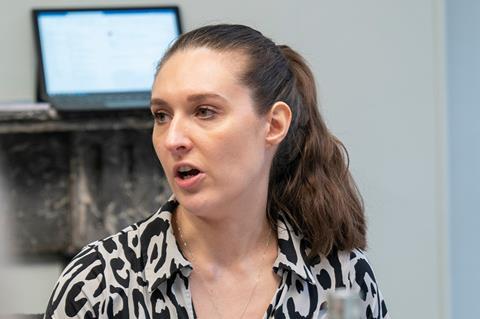
Candidates also take a growing interest in client selection. Carrodus notes that the firm’s ‘Reputational Risk Group’, a committee of senior lawyers, ‘looks at all the work that comes in that might have an adverse impact on our climate targets or how we think we should be operating as a responsible firm environmentally [and] socially. How it might sit with our people’. As a result, he notes, profitable instructions have been turned down.
'Gen Z have been guinea pigs in a lot of ways. They’ve had the SQE, they’ve had Covid, they’ve had working from home. The profession should admire their confidence'
Rebekah Sutcliffe, Junior Solicitors Network
Public good and the rule of law are front of mind in criminal law, Keenan notes: ‘We’re in a space where the criminal justice system is not getting funded. Many people who go into criminal law feel that being a criminal lawyer is a really important role in our society and, actually, everybody should have the right to representation… a lot of the time you actually do feel very strongly and passionately about the rule of law and access to justice.’ As a result, she adds: ‘We get people that are really, deeply interested in that.’
Is it fair to describe Gen Z as a demanding generation, given all the above considerations? Insofar as this is true, JSN’s Sutcliffe reflects, those demands are earned. She praises Gen Z’s resilience: ‘They have been guinea pigs in a lot of ways. They’ve had the SQE, they’ve had Covid, they’ve had working from home.’ The profession, Sutcliffe concludes, should ‘admire their confidence’.
The roundtable discussion was kindly sponsored by Dye & Durham. For more information, see dyedurham.co.uk
Photographs by Noah Da Costa























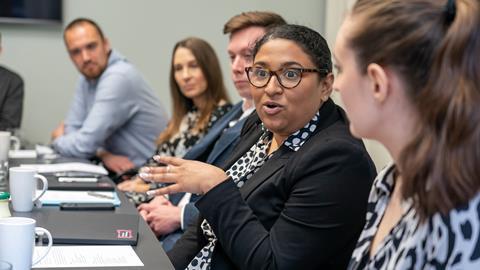













2 Readers' comments